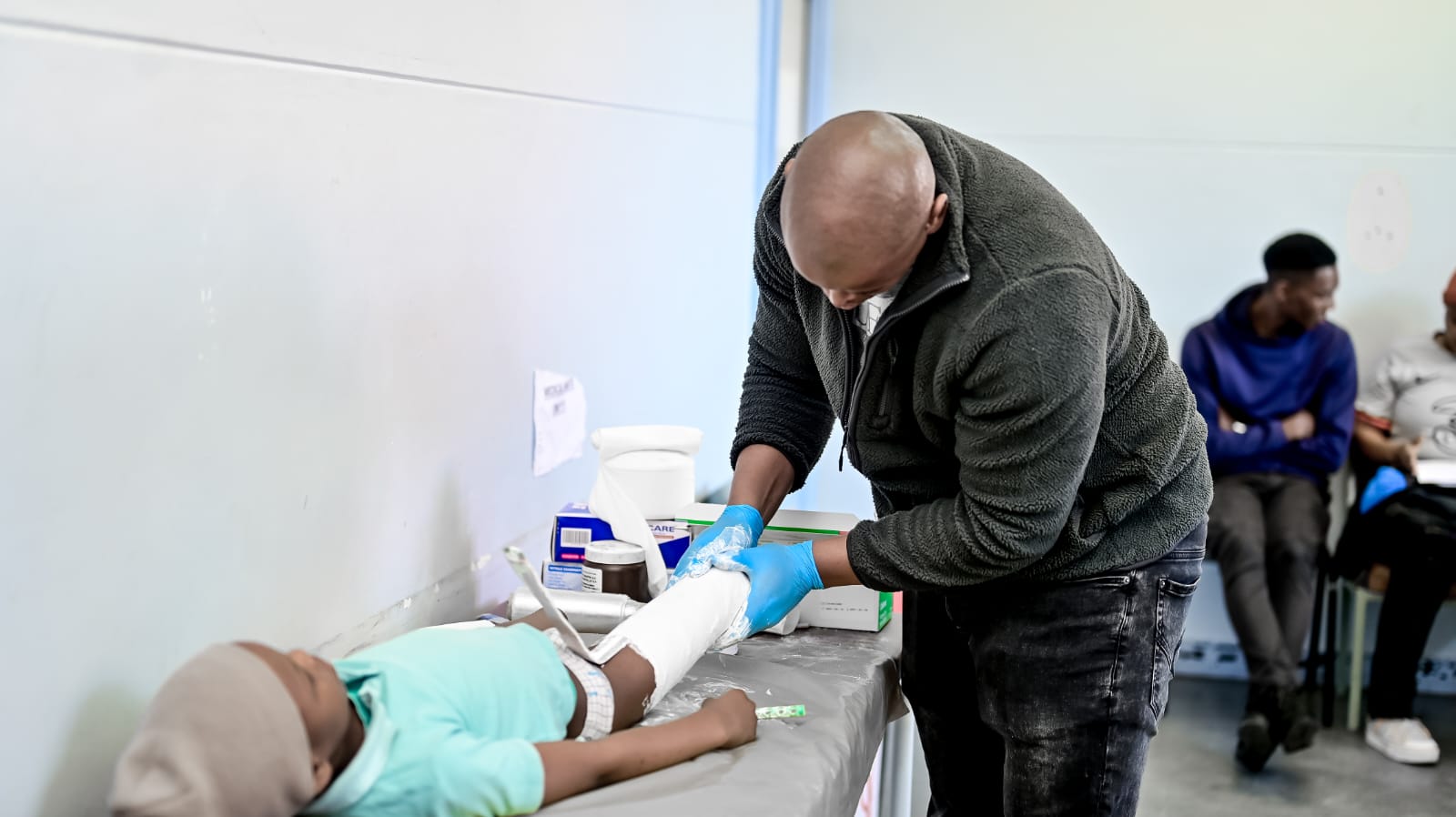WSU & HEALTH DEPARTMENT COLLABORATE TO PROVIDE PROSTHETICS FOR CHILDREN

WSU’s Department of Rehabilitation in the Faculty of Health Sciences and Medicine, in collaboration with the Provincial Department of Health, has embarked on a remarkable initiative to provide paediatric prosthetics to children in need.
The project is aimed at providing artificial limbs for children who were physically impaired from birth or as a result of a medical condition, to improve their mobility as well as general quality of life.
Five year old Olwam Rashaga whose life was disrupted after losing a foot as a result of a motor vehicle accident is one of the 15 recipients of prosthetic legs from the initiative.
Her guardian, Sindisiwe Tyokolo said that the pre-schooler had not attended school since her accident, and that her life had changed drastically as she was nolonger able to do the things she used to enjoy.
“This will really help the child because she will now be able to go back to school. She will return to the child she used to be and have the freedom to play with other kids and take part in the activities she used to love,” said Tyokolo.
The initiative, birthed out of 30-years of democracy celebrations, is part of the department's ongoing community service efforts, aimed at providing essential support to local communities.
The Department of Rehabilitation recently visited Mthatha, Gqeberha, as well as East London to do casting as well as pre prosthetic fitting for the recipients.
The children's new prosthetic legs will be manufactured in Mthatha and handed over to their owners at the end of August 2024.
"This project is part of our service to the community. We are utilizing paediatric prosthetic components from within the university, ensuring they benefit those in need," said lecturer, Siphosethu Mgwili.
Mgwili asserted that they also wanted to create awareness within the Eastern Cape community that medical assistance for such cases is available within the province as WSU produces professionals in the field.
“I think it is such a norm that if a child was born a certain way, for example, with a foot that was too small, then the parent decidedes on an amputation, the child will grow up that way. And parents do not consider that there are alternatives to this, such as getting a prosthetic leg,” said Mgwili.
Sesethu Sibika, whose child was amputated after birth due to a medical condition, said that she felt elated that her three-year-old boy would be able to walk on his own.
“I had to choose whether my child would have to undergo constant operations until the age of eighteen, or let the doctors amputate immediately. I could not let him grow up like that, so I decided to amputate. I am happy now that he will receive a leg and be able to walk and be like other children,” said Sibika.
Mgwili, who has received multiple accolades for her work in prosthetics, said that although the project was initially aimed at celebrating 30 years of democracy, the department of rehabilitation would continue to initiate such projects for the benefit of the community as well as its students.
By Yanga Ziwele
